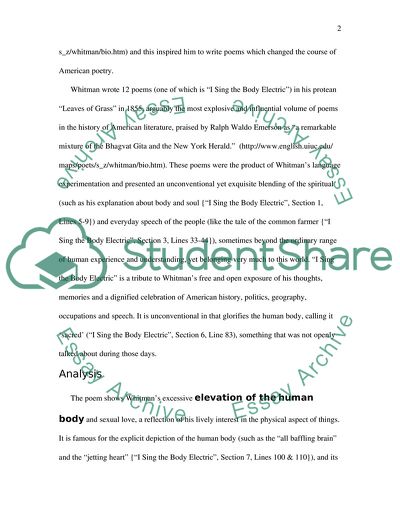Cite this document
(“The Poem I Sing the Body Electric by Walt Whitman Analyses Essay”, n.d.)
Retrieved from https://studentshare.org/literature/1537850-the-poem-i-sing-the-body-electric-by-walt-whitman-analyses
Retrieved from https://studentshare.org/literature/1537850-the-poem-i-sing-the-body-electric-by-walt-whitman-analyses
(The Poem I Sing the Body Electric by Walt Whitman Analyses Essay)
https://studentshare.org/literature/1537850-the-poem-i-sing-the-body-electric-by-walt-whitman-analyses.
https://studentshare.org/literature/1537850-the-poem-i-sing-the-body-electric-by-walt-whitman-analyses.
“The Poem I Sing the Body Electric by Walt Whitman Analyses Essay”, n.d. https://studentshare.org/literature/1537850-the-poem-i-sing-the-body-electric-by-walt-whitman-analyses.


